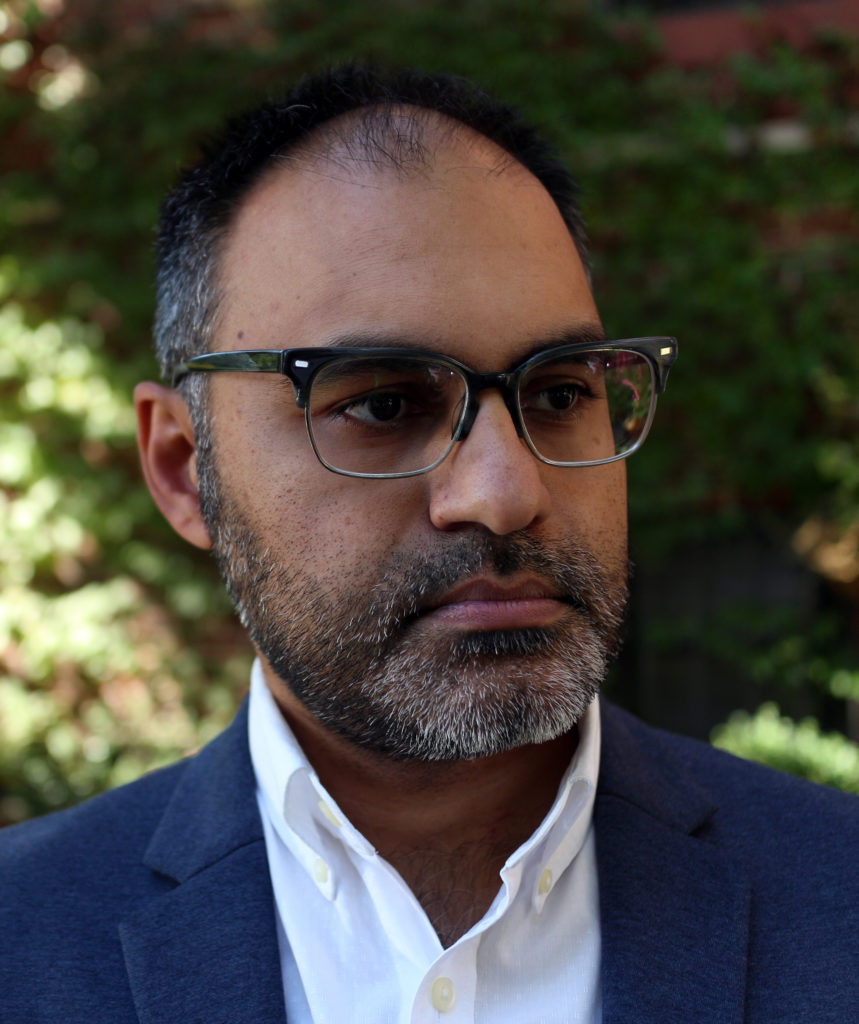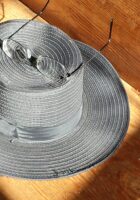Poem of the Week | December 18, 2017

Faisal Mohyuddin: “The Opening”
This week, we are excited to present a new poem by Faisal Mohyuddin. Mohyuddin is the author of the chapbook The Riddle of Longing (Backbone Press, 2017) and the full-length collection The Displaced Children of Displaced Children (Eyewear Publishing, 2018), selected by Kimiko Hahn as the winner of the 2017 Sexton Prize. New work appears or is forthcoming in Tinderbox, Quiddity, Narrative, Fifth Wednesday Journal Plus, and the anthology Misrepresented People: Poets Respond to Trump’s America (New York Quarterly Books, 2018). The recipient of the 2014 Edward Stanley Award from Prairie Schooner and a winner of a 2017 Gwendolyn Brooks Poetry Award, Faisal is a recent fellow in the U.S. Department of State’s Teachers for Global Classrooms program, serves as an educator adviser to Narrative 4, and teaches English at Highland Park High School in Illinois. He lives with his wife and son in Chicago. Find him at www.faisalmohyuddin.com.
The Opening
It is You we worship; it is You we ask for help. Guide us
to the straight path: the path of those You have blessed,
those who incur no anger and who have not gone astray. —The Holy Quran, “Al-Fatiha,” verses 5-7
THE CHILD: Tell me, Father,
what new turbulence took hold
in your blood on the day of my birth,
and did your stomach sink
each time I cried out for the basket
of your arms?
THE FATHER: I held you too close
to feel anything but the wild
gallop of your tiny heart.
THE CHILD: Did you recite
the call to prayer in my ear, slip
your pinky, dipped in honey, in my mouth
to mark with song and sweetness
my entry into the ummah
of the Prophet Muhammad?
THE FATHER: All night, I nursed
a candle’s flame, leaning in and out
of its sphere of light, mumbling verses
of the Qur’an, mispronouncing
the Arabic, not understanding a word
beyond “Al-Fatiha,” but knowing,
nonetheless, I had fulfilled
this first obligation of fatherhood.
THE CHILD: What was it like
to look into my eyes for the first time?
THE FATHER: I felt as if my fingers
had combed the embryonic silt feathering
the deepest bottom of the ocean.
And when I resurfaced, holding the key
to fatherhood, I understood
the true worth of being a living thing.
THE CHILD: What did you say
to Mother when she could not find
the words to tell you about how
the breaking open of a body
propels one toward heaven, that God
promises the greatest share of Paradise
to mothers?
THE FATHER: After a long silence,
I said, “To every unutterable thing
buried in your heart, to every miraculous truth
teetering on the tip of your tongue,
yes, yes, ameen.”
THE CHILD: Did you spill the blood
of two goats, give their meat to the poor,
to bless my arrival, to mark
the transition of my soul
from the library of the eternal
into the living fire of a body too fragile to share?
THE FATHER: For twenty years,
I harvested the silhouette of my father’s voice
from the night sky, let its echo rock me
to sleep whenever I felt so crushed
by heartache that even God’s infinite love,
a rescue vessel sailing through a history
of bloodshed and loss, could not hold me
intact enough to believe in survival—
so if it was my hand or another’s
that guided the blade along two throats
I cannot recall, nor do I want to.
THE CHILD: What else
might you have done
had fatherhood not stolen you
from the life you knew?
THE FATHER: When a surgeon
saves your life by amputating a limb
housing a reservoir of poison,
you do not curse the violence
of his work, nor the pain of the procedure.
You bow down before God.
You thank the man. You learn to write
with the other hand, to walk
on one leg.
THE CHILD: One final question,
Father. What should I say
when my son, when I too become a father,
asks me about the hours
of your life that exist beyond
my knowing?
THE FATHER: Tell him more
about the hours of your life
so his hunger is not as desperate
nor as bottomless
as ours.
Author’s Note:
In “The Opening,” a nameless child interviews his father on matters related to history, grief, parenthood, love, and holiness. Each question emerges from a “bottomless” curiosity borne of silence, from a desire to feel closer to the father—and every response, expressed like a riddle, communicates the father’s inability to speak of his own history. A shared sense of longing frames the entire exchange, with both child and father seeking comfort and companionship in the other; yet, in the end, both realize that to find solace, they must turn their attention to the future.
In my own life, the most uncomfortable silences, the ones I most longed to fill and which in turn ushered me heart-first into poetry, were those related to the traumas my elders experienced during the Partition of 1947 and those associated with the death of my paternal grandfather about a decade later. Poetry has allowed me to invent answers to questions I could never voice aloud because I feared reawakening a pain my elders prefer to keep buried. I could even—as I do in this piece—pull my father from death, mythologize him for the sake of this interview, and broker a peace and reconciliation with our respective pasts.
The poem’s title is borrowed from the title of the opening surah of the Holy Qur’an, “Al-Fatiha.” In its first verses, Muslims declare their faith in God’s grandeur and mercy; in the final three verses (which are the epigraph for my poem), we express an open-ended appeal for guidance. What follows is the rest of the Qur’an—answers to that prayer, verses of guidance, maps for the heart, mind, spirit, and body. My poem opens my forthcoming debut collection, The Displaced Children of Displaced Children, and sets in motion a larger, grander mission. And the rest of the book—and to some extent everything I will ever write—follows my mythologized father’s charge at the end of “The Opening”: in order to combat the longing and displacement that comes from not-knowing, I must endeavor to tell my son more about my life so that “his hunger is not as desperate / nor as bottomless” as both my father’s hunger and my own.
SEE THE ISSUE
SUGGESTED CONTENT

Poem of the Week
May 13 2024
“The Sacrifice of Isaac” by Chris Ketchum
“The Sacrifice of Isaac” by Chris Ketchum is our Poem of the Week. Chris Ketchum is from Moscow, Idaho. He received an MFA from Vanderbilt University and is a PhD… read more

Poem of the Week
May 06 2024
“from Elam House (Austin, Minnesota)” by G.C. Waldrep
“from Elam House (Austin, Minnesota)” by G.C. Waldrep is our Poem of the Week. G.C. Waldrep’s most recent books are feast gently (Tupelo, 2018), winner of the William Carlos Williams… read more

Poem of the Week
Apr 29 2024
“This Body is a Songbird in a Kiln” by Athena Nassar
“This Body is a Songbird in a Kiln” by Athena Nassar is our Poem of the Week. Athena Nassar is an Egyptian-American poet, essayist, and short story writer from Atlanta,… read more

